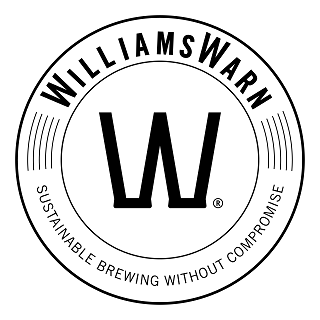Pressure fermentation is the process of keeping the CO2 produced by the yeast during fermentation inside the fermenter. During fermentation, pressure then builds up within the vessel. The benefits of pressure fermentation relate to the reduction in the production of yeast esters and fusel alcohols. Further, the yeast is able to perform consistently under a very broad range of temperatures. Pressure fermentation has been about for some time now and seems to be a well debated topic. As the principal engineer involved in the design of the WilliamsWarn range of products, I have my personal view and thought you might like to get a little inside running.

How it all Started
Around 7 years ago I met up with Ian Williams and he explained to me the process he and his mate Anders Warn had developed to improve beer quality and remove a pile of pain points for the home brewer. Enabling pressure fermentation in a small batch home brewing solution was a key part of the improvements they made.
I was fascinated, firstly because I knew next to nothing about how to make beer but mainly because I had never considered making my own. My prior experiences of home brewed beer would have kept that thought far from my mind.
The first beer that I made with this pressure fermentation process tasted amazing. It was clear, crisp and perfectly carbonated beer poured from the vessel that it was brewed in. What got me hooked was that the beer I was making tasted just like Ian’s beer. And Ian is a qualified Master Brewer!
I am someone who can’t help but want to improve everything I get involved in. I quickly found myself deeply entrenched in the engineering and design of the first WilliamsWarn BrewMaster.
The Result of Pressure Fermentation
This pressure fermentation process proved to be spot on, the quality of the end result really started to shine through. One of our customers won a Gold Medal Awarded at an International Brewing Award for a pilsner brewed in one of the first BrewMasters produced. Another customer won an International Award with a Silver the year after at the same competition brewed in a Gen 2 BrewMaster.
Wow, this now feels like we have the tiger by the tail! Well not quite, the cost of the product and the expense to grow the brand with a very low sales volumes soon revealed that we needed to develop different versions of our product utilising the patented process so we could connect and sell to a much larger audience.
Along came the BrewKeg™ range. The BrewKeg™ is a simplified version of the BrewMaster that doesn’t have heating and cooling, leaving that part to the user to source or purchase as an accessory. However, the BrewKeg™ , like the BrewMaster, allows for pressure fermentation.
I am different to most brewing hardware designers because I am not a brewer and have never had to experience the pain of doing it the “old way”: sanitizing was a major concern, requirement for carbonation drops in bottles, lengthy brewing times and beer with sediment in it at the end. My experience has been fast ferments under pressure at high temperatures, clarifying and separating yeast under pressure resulting in crystal clear, carbonated beer in 4 to 7 days ready to drink, with that in mind it is hard to look backwards, looking forward is the only way!
What’s Next
WilliamsWarn is constantly looking to improve its brewing hardware, ingredients and brewing process to make the process easier, the beer quality better while still allowing for full customisation.
Our ingredient kits and process comply with Reinheitsgebot (German Beer Purity Law) which requires beer to beer to be made from four ingredients: water, hops, barley and yeast. To adhere to the German Purity Laws, the beer is required to be carbonated from a natural ferment, our process not only carbonates from its own ferment but could soon be dispensed from its own ferment, watch this space.
Our BrewKeg™ range includes currently comprises of 10, 25 and 50 Litre BrewKeg™ pressure fermenters and we expect to be launching a 200 litre version in the next 6 months. All vessels are purpose designed and built to reduce infection, simplify cleaning, increase functionality and maximise consistency.
We are now in a position to reduce the carbon footprint of beer by sustainable brewing practices which embrace provenance through localised input.
The Yeast Trials
Trials are underway to test our process against current brewing theories by scientifically testing multiple brews done with the same ingredients at varying pressures and temperatures. We expect the results to be very favourable towards brewing at higher temperatures for both lagers and ales while fermenting under pressure, why would I expect the results to be favourable? We have been brewed hundreds of lagers and ales at around 28 degrees celsius over the past two years. All of our beer is made in under 7 days, we have given out tens of thousands of samples to the public and not one of them have picked up any issues with esters or fusel alcohols – the bad by-products that deliver a “home brew” flavour that can be found in traditional methods.
We now have thousands of satisfied customers who are enjoying consistent high quality sustainable beer at a fraction of the cost of commercial beer and the word is spreading.
Summary
Brewing under pressure, whether it is with extract or all grain enables beer to be fermented faster, more consistently, reduces risk of infection, enables complete carbonation control and increases beer quality. Keep in mind this is written by an engineer, if you have any doubts, don’t worry: I’ll be following up with the test results!
